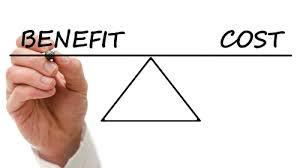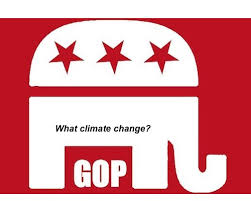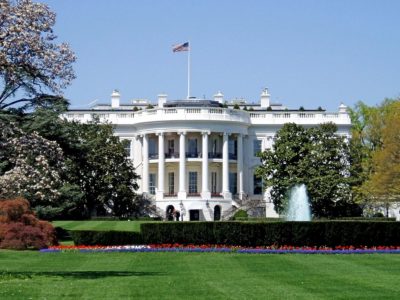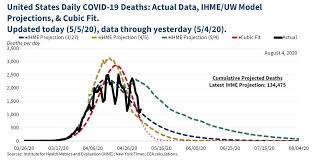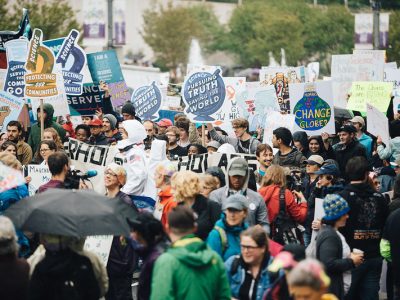Regulatory Policy
Environmentalists v. Cost-Benefit Analysis: What Does the Future Hold?
For now, at least, environmentalists and economists are aligned in criticizing Trump’s rollbacks. Will this alliance last?
If it’s true that “the enemy of my enemy is my friend,” environmentalists might want to take another look at cost-benefit analysis. The Trump Administration is certainly doing its best to gut economic analysis of its rollbacks. Both economists and environmentalists are resisting. Is this an alliance of convenience or will it be the start …
Continue reading “Environmentalists v. Cost-Benefit Analysis: What Does the Future Hold?”
CONTINUE READINGDC Circuit Restricts “Housekeeping” Regulations
The Trump Administration likes to justify policy initiatives based on vague grants of authority. That’s just become harder.
Earlier today, the D.C. Circuit Court of Appeals decided two cases that add to the legal difficulties the Trump EPA will face in court. The difficulties relate to two proposed EPA rules that attempt to hamstring future efforts to impose tighter restrictions on pollution. Both EPA rules rely on vague, general grants of rule-making authority …
Continue reading “DC Circuit Restricts “Housekeeping” Regulations”
CONTINUE READINGDeja Vu All Over Again
There’s a new GOP Platform, same as the old one.
It appears that the GOP won’t have a new platform this year. Instead, they’re going to stick with their 2016 platform. You could see that as steadfastness or a lack of new ideas. In the environmental arena, 2016 is still where the GOP is stuck today, celebrating fossil fuels and rejecting climate action. Here are …
Continue reading “Deja Vu All Over Again”
CONTINUE READINGThe Conservative Assault on Presidential Administration
Are they afraid of “faceless bureaucrats”? Or Democratic Presidents?
Conservatives are on a campaign to reduce agency discretion. They don’t seem to realize that in today’s world, that really amounts to an attack on presidential power. These days, it’s generally not bureaucrats or even cabinet officers who make the real decisions about regulation. It’s the White House. So the campaign against the administrative state …
Continue reading “The Conservative Assault on Presidential Administration”
CONTINUE READINGTrump EPA Takes Aim at Cost Benefit Analysis; Misses
The proposed new EPA regulation on cost-benefit analysis seems to be a dud.
An EPA rule-making on cost-benefit analysis was supposed to be a big win for conservatives and industry. They want to rig cost-benefit analysis by counting all of a regulation’s costs but only some of the benefits. But the EPA proposal issued last week appears to give them only a token victory. The issue involves what are …
Continue reading “Trump EPA Takes Aim at Cost Benefit Analysis; Misses”
CONTINUE READINGTrump says he will allow commercial fishing in national monument
An Antiquities Act edition of “can he do that”?
On June 5, President Trump issued a “Proclamation on Modifying The Northeast Canyons And Seamounts Marine National Monument.” This Proclamation follows a court defeat for opponents of the National Monument — the DC Circuit last year dismissed a claim by commercial fishing interests that the National Monument was unlawfully designated. Trump’s Proclamation purports to modify …
Continue reading “Trump says he will allow commercial fishing in national monument”
CONTINUE READINGLeaving Paris (from Rex Tillerson’s Diary)
Here’s how the deal was undone.
Three years ago today, Trump announced that he would withdraw from the Paris Agreement. Rex Tillerson, who was Trump’s Secretary of State about 10,000 tweets ago, was there, behind the scenes, when Trump was making the decision. Here’s what he might have written in his diary:. April 1. Talked with DT today. He said he’d …
Continue reading “Leaving Paris (from Rex Tillerson’s Diary)”
CONTINUE READINGGuest Contributors Helen Kang and Deborah Sivas: California Should Lead the Nation in Controlling Agricultural Pollution
Protection of Drinking Water and Environmental Quality Demands Strong Action
Agricultural runoff is one of the largest sources of pollution in the nation’s waterways. In recent years, scientific journals and the media have been filled with reports of toxic algae blooms and dead zones near and far: The Everglades, Great Lakes, Gulf of Mexico, Chesapeake Bay, and San Francisco Bay-Delta. Agricultural pollution also threatens public …
CONTINUE READINGUsing and Abusing Models: Lessons from COVID-19
We’ve seen some great examples of how NOT to deal with models.
Models have figured heavily in government responses to the coronavirus. This has given us the opportunity for a real-time lesson in the uses of models. In the process, we’ve learned some important lessons in how to best make use of models — and equally importantly, in how not to use them. That’s directly relevant to …
Continue reading “Using and Abusing Models: Lessons from COVID-19”
CONTINUE READING100 Law Professors Urge EPA to Withdraw Revamped “Transparency in Science” Rule
EPA’s new proposal would go beyond even the far-reaching original to limit agency use of the best science
Today, on behalf of 100 environmental and administrative law professors affiliated with 70 universities in 33 states and the District of Columbia, Sean Hecht and I filed a comment letter urging EPA to withdraw its updated proposal to limit the use of science in agency decisionmaking processes, misleadingly named the “Strengthening Transparency in Science” rule. …
Continue reading “100 Law Professors Urge EPA to Withdraw Revamped “Transparency in Science” Rule”
CONTINUE READING



